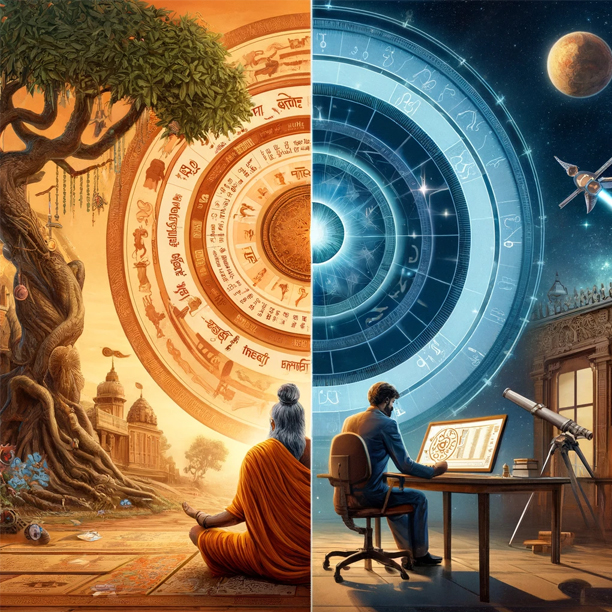
Astrology has been an integral part of human civilization, helping people understand their past, present, and future. Among the various forms of astrology practiced worldwide, Vedic astrologer and Western astrologer are the two most prominent systems. While both aim to provide insights into human destiny, they differ significantly in methodology, calculations, and interpretations. In this guide, we will explore the main differences between Vedic & Western astrology to help you understand which system resonates more with you and about the best astrologer in Kolkata.
Vedic astrology, also known as Jyotish Shastra, has its roots in ancient Indian scriptures called the Vedas. This system has been practiced for over 5,000 years and is deeply connected to Hindu philosophy. Vedic astrology is based on the sidereal zodiac, which aligns planetary positions with fixed constellations. It follows the belief that celestial bodies influence human karma, and it offers insights into a person’s past, present, and future.
Western astrology traces its origins to Mesopotamian civilizations and was later refined by the Greeks and Romans. It follows the tropical zodiac, which is based on the Earth’s seasonal cycles rather than fixed constellations. This system places significant emphasis on psychological analysis, personality traits, and personal development rather than predictive forecasting.
One of the most fundamental differences between Vedic and Western astrology lies in their approach to the zodiac system. Vedic astrology uses the sidereal zodiac, meaning it accounts for the gradual shift of the Earth's axis known as precession. This ensures that the planetary positions are more closely aligned with the actual constellations in the sky. Western astrology, on the other hand, follows the tropical zodiac, which remains fixed and does not adjust for this shift. This means that over time, the two systems have diverged in how they assign zodiac signs. As a result, a person’s Sun sign in Western astrology may differ from their Sun sign in Vedic astrology.
Vedic astrology is highly predictive and relies on multiple tools to forecast events. One of its core components is the Dasha system, which outlines different planetary periods that influence a person’s life at specific times. The transits (Gochar) of planets are also studied in detail to determine their impact on a person’s life. Additionally, Vedic astrology considers the Nakshatras (lunar mansions), which provide further insights into a person’s characteristics and destiny.
Western astrology focuses more on self-awareness and psychological analysis rather than specific event predictions. It emphasizes planetary aspects, which examine the angles between planets to understand how they influence an individual’s emotions, relationships, and personality. Instead of a rigid predictive model, Western astrology is often used as a tool for self-discovery, personal growth, and understanding life cycles through progressions and transits.
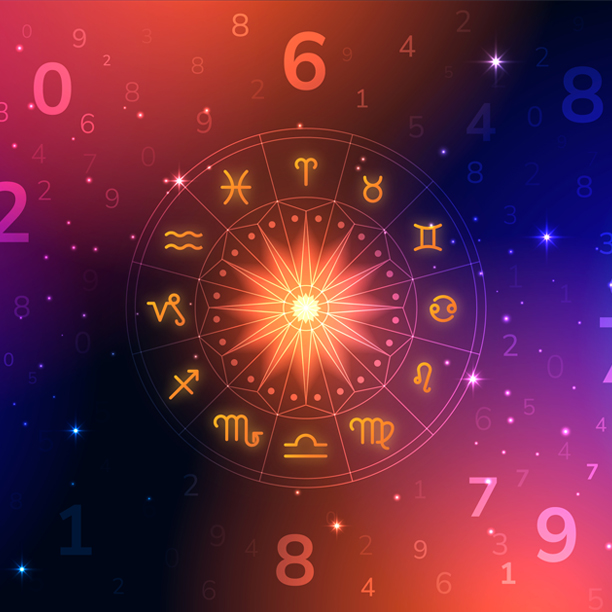
Vedic astrology places more emphasis on the Moon sign rather than the Sun sign. The Moon represents emotions, subconscious patterns, and mental tendencies, making it a key indicator of a person’s mind and behavior. Vedic astrology also studies the Ascendant (Lagna) in great detail, as it determines a person’s personality and life path.
Western astrology, however, prioritizes the Sun sign, which represents one’s core identity and ego. While the Moon and Ascendant are still considered in Western astrology, they play a secondary role compared to the Sun.
One of the unique aspects of Vedic astrology is the use of Dashas, which are planetary cycles that influence different phases of a person’s life. Each planet rules for a certain period, shaping significant life events during its rule. This system provides a structured timeline for analyzing life’s ups and downs, making Vedic astrology highly precise in predicting major life events.
Western astrology does not use Dashas. Instead, it focuses on progressions and transits, which analyze how a person’s birth chart evolves over time. These methods help understand personal development and life patterns rather than giving exact predictive timelines.
Vedic astrology offers various remedies to mitigate the negative effects of planetary placements. These include chanting specific mantras, wearing prescribed gemstones, performing yagnas (fire rituals), observing fasts (vrat), and engaging in charitable acts. The idea behind these remedies is to balance planetary energies and reduce karmic burdens.
Western astrology, in contrast, focuses more on psychological awareness and behavioral adjustments. It encourages self-reflection, therapy, and mindfulness as ways to work with planetary influences. Unlike Vedic astrology, Western astrology does not suggest rituals or gemstone remedies but instead promotes self-improvement techniques.
If you are looking for a system that provides precise predictions and remedies, Vedic astrology is the better choice. It is deeply rooted in spiritual and karmic principles and offers structured timelines for major life events.
If you prefer a system that focuses on personal growth, personality analysis, and psychological understanding, Western astrology may be more suitable. It helps individuals gain self-awareness and navigate their inner world with greater clarity.
Some astrologers combine both systems to provide a more comprehensive perspective, integrating the strengths of both approaches.
A: Vedic astrology uses the sidereal zodiac, which accounts for planetary shifts, whereas Western astrology follows the fixed tropical system. This difference causes shifts in Sun sign placements.
A: It depends on what you are seeking. Vedic astrology excels in predictive accuracy, while Western astrology provides deep psychological insights.
A: Yes, many astrologers integrate both systems to provide a well-rounded analysis of an individual’s birth chart.
Both Vedic and Western astrology offer valuable insights into life and destiny. While Vedic astrology is known for its predictive power, karmic analysis, and remedial measures, Western astrology excels in psychological understanding and personal growth. Choosing the right system depends on your personal needs and interests. If you are looking for personalized guidance, Anjan Shastri, a renowned astrologer, can help you uncover the secrets of your birth chart. Contact Anjan Shastri for a detailed astrology consultation today!
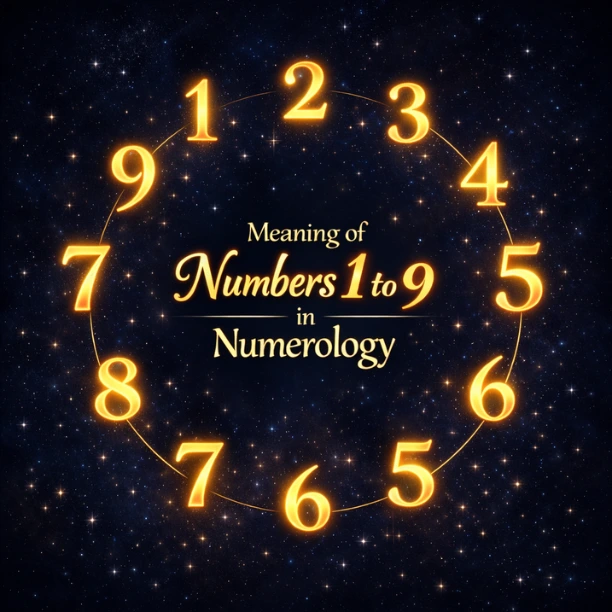
Meaning of Numbers 1 to 9 in Numerology
25/02/2026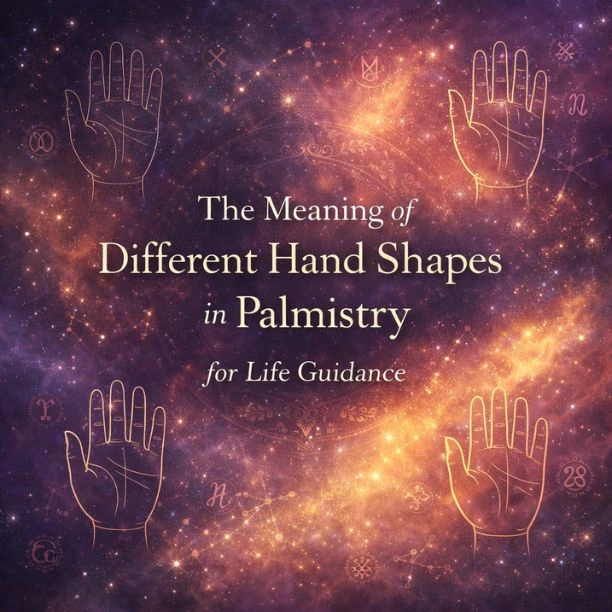
The Meaning of Different Hand Shapes in Palmistry
18/02/2026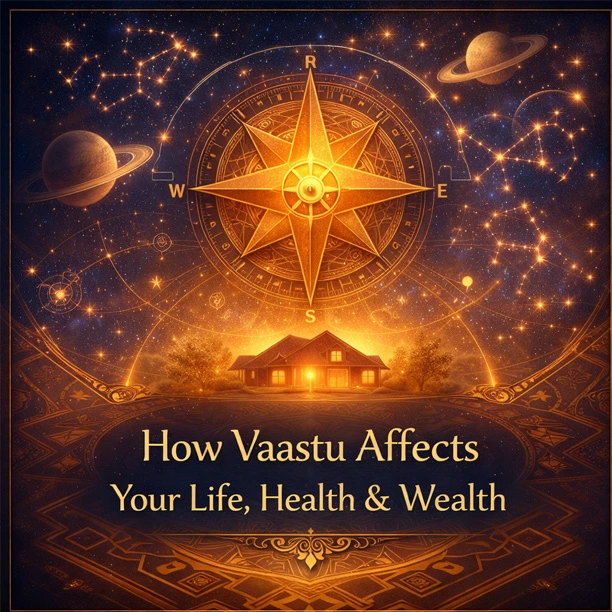
How Vaastu Affects Your Life, Health & Wealth
11/02/2026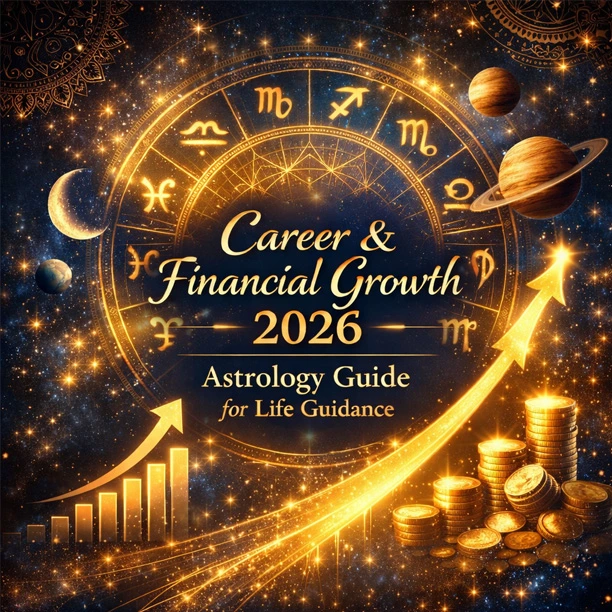
Career & Financial Growth 2026 Astrology Guide
04/02/2026© 2024 Dr Anjan Shastri . All Rights Reserved | Design & Developed by DITS